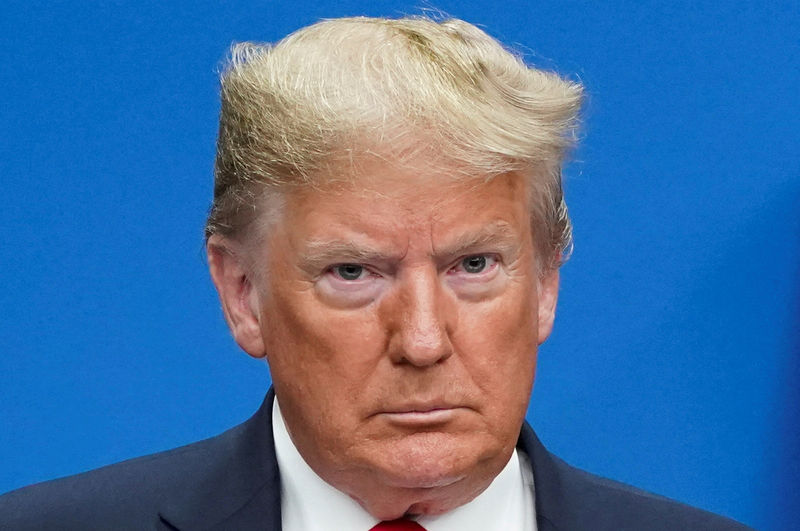By Jan Wolfe
(Reuters) - With U.S. House of Representatives Speaker Nancy Pelosi on Thursday having instructed the House Judiciary Committee to draft articles of impeachment, here are potential offenses that President Donald Trump might face.
BRIBERY
Democrats launched an investigation in September focused on Trump's request for Ukraine to conduct investigations that might benefit him politically and harm former Vice President Joe Biden, a leading contender for the Democratic nomination to the November 2020 presidential election.
Trump administration officials told public congressional hearings that the White House held up nearly $400 million in security aid to Ukraine to pressure its president to announce the investigations that Trump wanted.
Pelosi framed Trump's conduct as bribery during a Nov. 14 news conference after weeks of rank-and-file Democrats referring to Trump's conduct as a "quid pro quo," or exchange of favors.
"The bribe is to grant or withhold military assistance in return for a public statement of a fake investigation into the elections," Pelosi said. "That’s bribery."
There is an obvious appeal to framing Trump's conduct as bribery, legal experts say: not only is it an easy concept to grasp, but it is one of two impeachable offenses specifically mentioned in the U.S. Constitution.
The Constitution states that a president can be impeached for "Treason, Bribery, or other high Crimes and Misdemeanors."
ABUSE OF POWER
Some legal experts have argued that rather than charge Trump with bribery based on his Ukraine dealings, House Democrats should frame his conduct more broadly as abuse of power.
Political bribery is a narrowly defined crime under U.S. law, and Trump's fellow Republicans are likely to argue that Democrats cannot prove that Trump committed that offense.
Many legal experts have said impeachment is a political process, not a court proceeding, and that House Democrats are not required to adopt the definition of bribery in the U.S. criminal code.
OBSTRUCTION OF CONGRESS
In a report this week, House Democrats argued Trump has obstructed their investigation, including by refusing to provide documents and testimony from his top advisers, trying to block career government officials from testifying, and by intimidating witnesses.
OBSTRUCTION OF JUSTICE
Some House Democrats have sought to focus narrowly on Ukraine; others have argued that Trump should also be impeached based on a 448-page report completed in March by former Special Counsel Robert Mueller.
Mueller detailed Russian interference in the 2016 election, through a campaign of hacking and propaganda, as well as contacts between Trump’s campaign and Moscow.
Mueller’s report, released in redacted form in April, cited about 10 instances in which Trump acted to impede the investigation.
Mueller did not exonerate Trump of obstruction of justice, though Attorney General William Barr, a Trump appointee, afterward decided that the president had not committed obstruction.
Both Trump and Russia deny meddling in that election.

If the Democratic-led House approves articles of impeachment by a majority vote, the Republican-led Senate would put Trump on trial and seems unlikely to have the two-thirds majority support required for removal.